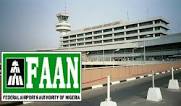Phillips Consulting Nigeria, one of Nigeria’s leading economic research and investment consulting firms, in its ‘Nigeria’s Aviation Industry: Customer Satisfaction Survey Report 2022’ just published, has identified airlines’ safety standards, pricing affordability and timeliness of flights as among the key criteria air travellers in the country are considering before choosing airlines for travels.
In the past few years, research findings reflected that the global aviation sector had exhibited strong momentum but despite the global trend, the Covid-19 pandemic negatively impacted the industry both internationally and locally.
Like in other countries like Ethiopia and Kenya, the Nigerian aviation sector was set for recovery upon reversing the travel restriction as the sector grew by 19.7%, returning to its pre-pandemic growth.
The latest report from the National Bureau of Statistics (NBS), showed that about 13 million passengers travelled through Nigerian airports in 2021, representing a growth rate of 43.41% from 9 million recorded in 2020.
The PCL’s report is a country-wide survey, which aims to explore the state of the industry from the passengers’ lens to identify progress and gaps to support strategic transformation.
This year’s survey was carried out to understand better domestic air travelers’ perceptions, expectations, and experiences of both airline services and airport experience.
The report findings reflect that air travelers are becoming increasingly sensitive to the quality of service as a guarantee of more value for their ticket money.
Also, the Survey further finds that high safety standards, affordable pricing, and a good record of timeliness for flight departures/arrivals are among the top four reasons for airline preferences.
In view of the survey result, analysts have noted that air service providers need to improve their services to be more customer-oriented, meet customer requirements, and have the commitment to enjoy continued patronage
Despite its vast potential, industry experts observed that the sector was still being constrained by numerous inherent challenges. For instance, the Nigeria’s aviation industry is characterized by a high level of market exits by foreign and domestic operators, mismanagement of funds, and poor safety compliance rate.
Other hiccups they identified as militating against the growth of the industry include inadequate infrastructure, high operational costs, stifling regulatory policy regime characterized by high taxes, high cost of aviation fuel, and fierce competition for international routes, among others.






